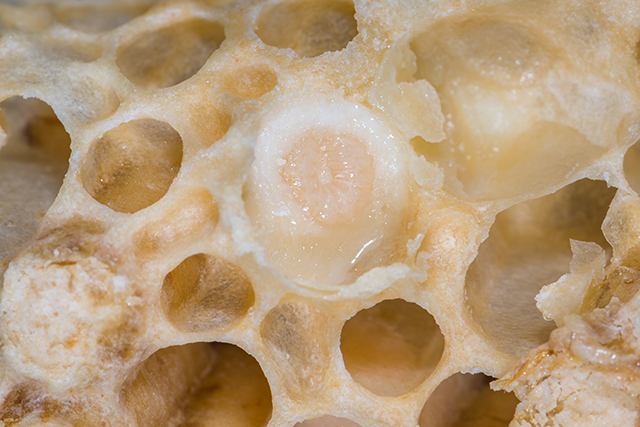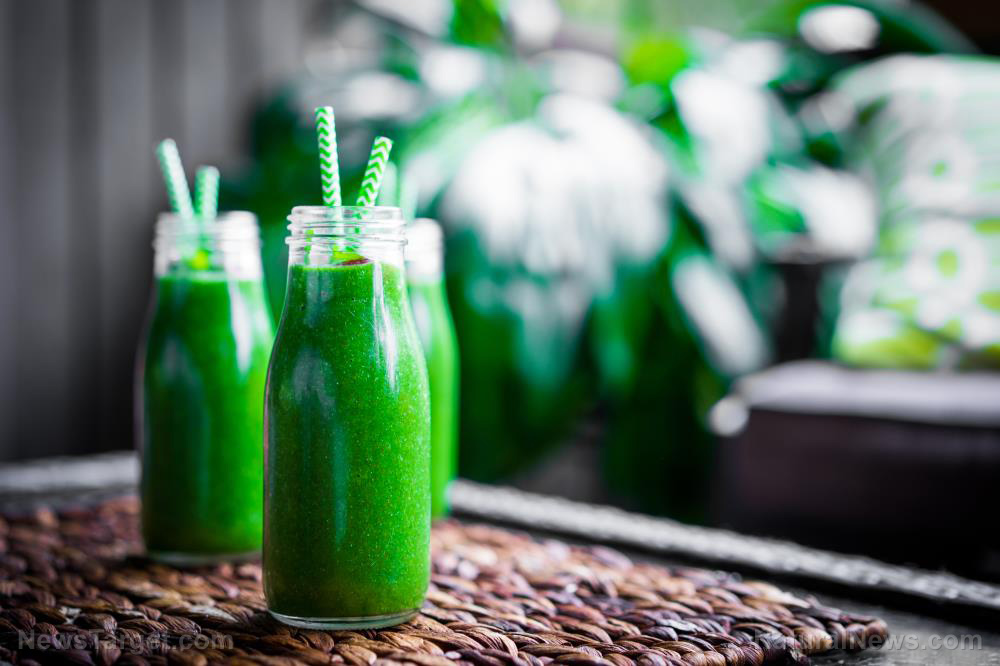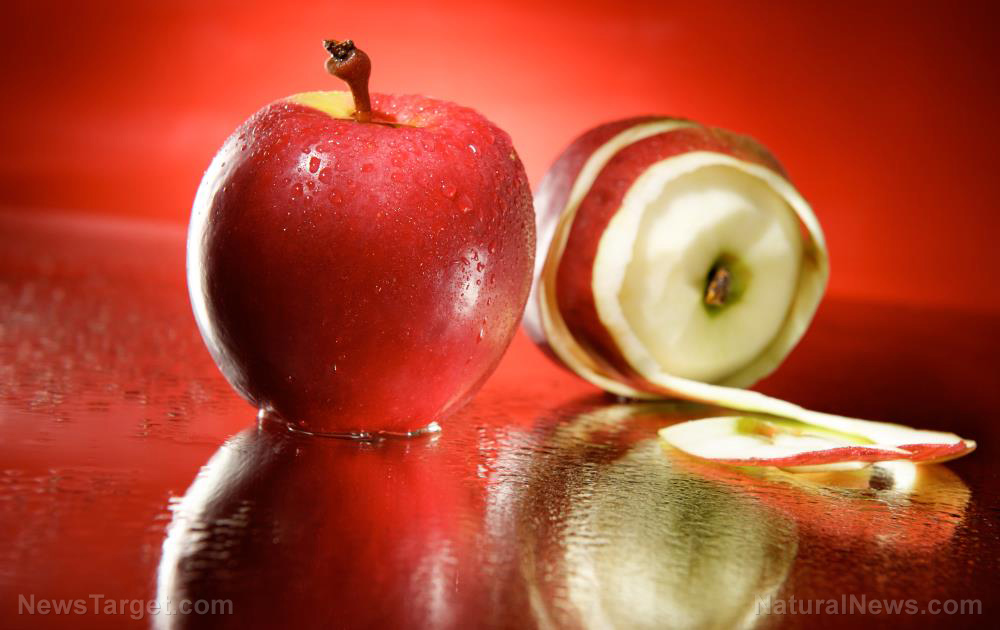Royal jelly: Another nutritious bee product you should know about
05/12/2025 / By Ava Grace

- Royal jelly is a nutrient-rich secretion produced by worker bees — fed exclusively to bee larvae and the queen bee — that promotes longevity and fertility. It has been used for centuries in traditional medicine and in recent years to support modern wellness.
- Revered by ancient Egyptians and Traditional Chinese Medicine practitioners, royal jelly gained global recognition in the 20th century for its anti-aging and energizing properties.
- Royal jelly contains all essential amino acids, B vitamins, minerals, unique fatty acids (like 10-HDA) and antioxidants. It offers skin and immune support and anti-inflammatory effects.
- Royal jelly has anti-aging properties and can support immunity, hormonal balance, blood sugar regulation and wound healing.
- It can be consumed raw or in capsule form or blended with honey. It can also be applied topically for skincare. Royal jelly is popularly used in recipes like smoothies and face masks, reflecting its versatility as a superfood.
Royal jelly, a milky-white substance secreted by worker honeybees, has been revered for centuries as a potent superfood. This viscous secretion is exclusively fed to bee larvae and the queen bee, contributing to her longevity and fertility.
Humans have harnessed royal jelly for its potential health benefits, from boosting immunity to enhancing skin vitality. Its rise as a superfood is rooted in both traditional medicine and modern scientific research.
Historical origins and discovery
The use of royal jelly can be traced back to ancient Egypt, where it was prized for its rejuvenating properties. Historical records suggest that Cleopatra used royal jelly to maintain her legendary beauty. In Traditional Chinese Medicine, royal jelly has been consumed for over 2,000 years as a tonic for vitality and longevity. (Related: The benefits of royal jelly for menopausal women.)
Modern scientific interest in royal jelly began in the early 20th century when researchers discovered its role in bee development. By the 1950s, royal jelly gained global attention as a health supplement, particularly in Europe and Asia, where it was marketed for its anti-aging and energizing effects.
Nutrient profile and health benefits
Royal jelly earned its superfood status due to its dense nutrient and phytonutrient profile. It contains:
- Amino acids, including all nine essential amino acids
- B vitamins, particularly B5 and B6
- Minerals like calcium, potassium, zinc and iron
- Fatty acids, including 10-HDA, a unique compound with anti-inflammatory and anticancer properties
- Antioxidants like flavonoids and phenolic acids
- Acetylcholine, which supports brain function and memory
- Royalisin, a protein with antibacterial properties
These compounds contribute to royal jelly’s reported benefits, which include:
- Providing immune support – Its antimicrobial properties can help fight infections.
- Anti-aging effects – Antioxidants can combat oxidative stress, reducing signs of aging.
- Supporting hormonal balance – Royal jelly components can help alleviate menopausal symptoms.
- Blood sugar regulation – Research indicates it may improve insulin sensitivity.
- Wound healing – When applied topically, it may accelerate skin repair.
While more clinical trials are needed, traditional use and preliminary studies confirm these benefits.
Royal jelly can be consumed in various forms, such as:
- Raw or freeze-dried – Taken directly or mixed into smoothies.
- Capsules or tablets – A convenient supplement form.
- Topical creams – Used in skincare for hydration and anti-aging.
- Honey blends – Often mixed with honey for enhanced flavor and benefits.
Culinary uses and recipes
Fresh royal jelly is pearly white, thick and slightly gelatinous. Its taste is tangy, slightly sweet and mildly acidic, which some describe as an acquired flavor.
A beekeeper in Greece once shared that his family had consumed royal jelly for generations, crediting it for their longevity. His grandfather, who lived to 98, took a daily spoonful mixed with honey — a tradition still followed today.
For those looking to incorporate royal jelly into their diet, here are a few recipe ideas:
- Royal jelly energy smoothie – Blended with banana, almond milk and chia seeds
- Royal jelly and cinnamon – Mixed with raw honey and cinnamon
- Skin-enhancing face mask – Combined with yogurt and aloe vera
- Royal jelly protein balls – Mixed with oats, nut butter and dark chocolate
In an era where natural remedies are gaining traction, royal jelly stands out as a time-tested superfood. With increasing research into its bioactive compounds, it holds promise for modern wellness applications — from skincare to metabolic health.
Royal jelly’s journey from ancient remedy to modern superfood underscores its enduring appeal — a testament to nature’s ability to provide powerful healing agents. Whether consumed as a supplement or applied topically, its potential benefits continue to captivate health enthusiasts worldwide.
This story is not medical advice and is not intended to treat or cure any disease. Always consult with a qualified naturopathic physician for personalized advice about your specific health situation or concern.
Visit NaturalNews.com, a great article source where you can learn about superfoods and their health benefits.
You can also try Brighteon.ai, an AI model created by Mike Adams, also known as the Health Ranger. This model is available as a free download to be run locally and is designed to help share and decentralize knowledge. By doing so, it aims to bypass censorship and empower people with knowledge.
If you’re looking for an uncensored video free speech website where you can openly discuss nutrition, natural medicine, ingredients and more, check out Brighteon.com and our two free speech social media sites, Brighteon.IO and Brighteon.social.
Watch and listen to a discussion on Royal Jelly and its benefits.
This video is from the Natural Cures channel on Brighteon.com.
More related stories:
Royal jelly supplementation found to alleviate menopausal symptoms.
Royal jelly proteins found to improve wound closure.
Discover the wondrous health benefits of royal jelly.
Royal Jelly Powder acts as a brain food.
Royal Jelly benefits humans as well as bees.
Sources include:
Submit a correction >>
Tagged Under:
#nutrition, bee product, food cures, food is medicine, food science, functional food, health science, honeybees, natural health, natural ingredients, natural medicine, nutrients, organics, phytonutrients, Royal jelly, supplements
This article may contain statements that reflect the opinion of the author





















